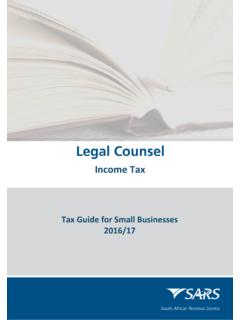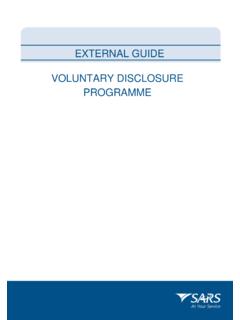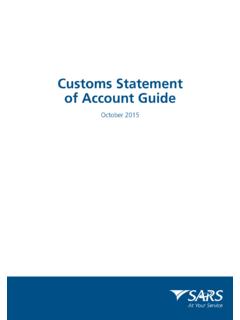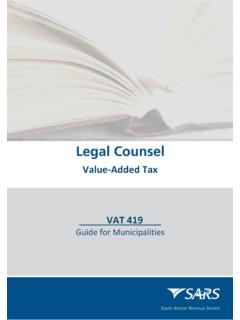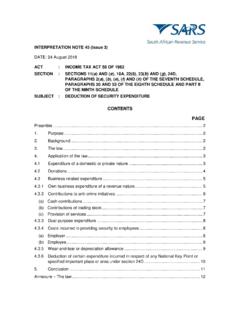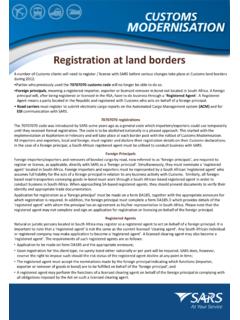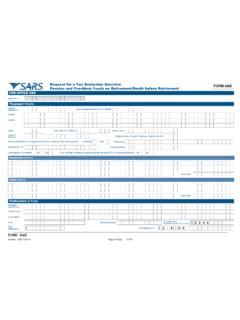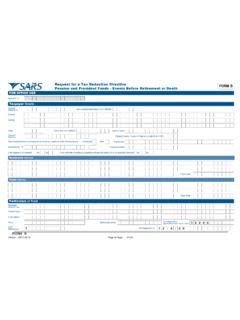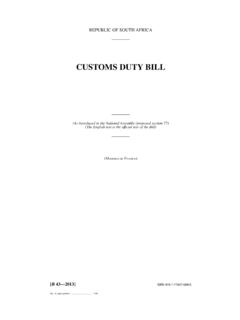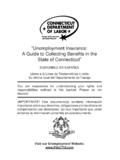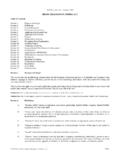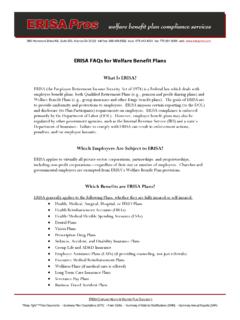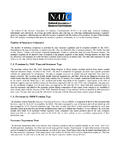Transcription of UIF-GEN-01-G01 - Guide for Employers in respect …
1 EXTERNAL Guide Guide FOR Employers IN respect OF THE unemployment insurance FUND EXTERNAL Guide - Guide FOR Employers IN respect OF UIF UIF-GEN-01-GO1 REVISION: 6 Page 2 of 13 TABLE OF CONTENTS 1 PURPOSE 3 2 SCOPE 3 3 BACKGROUND 3 4 GOVERNING LEGISLATION 3 5 REGISTRATION AND DEREGISTRATION 4 6 DUTY TO CONTRIBUTE 5 7 DETERMINATION OF THE CONTRIBUTION 5 8 DEDUCTION OF CONTRIBUTION 7 9 PAYMENT OF CONTRIBUTIONS TO SARS 7 10 INTEREST ON LATE PAYMENTS 8 11 PENALTIES ON DEFAULT 8 12 ESTIMATED ASSESSMENTS 9 13 REFUNDS 9 14 OBLIGATION OF EMPLOYER TO SUBMIT RECONCILIATION (EMP501) 9 15 RECORD KEEPING 10 16 DECLARATION INFORMATION 10 17 OFFENCES 11 18 REFERENCES 11 LEGISLATION 11 CROSS REFERENCES 12 19 DEFINITIONS AND ACRONYMS 12 EXTERNAL Guide - Guide FOR Employers IN respect OF UIF UIF-GEN-01-GO1 REVISION.
2 6 Page 3 of 13 1 PURPOSE The purpose of this document is to assist Employers in understanding their obligations relating to unemployment insurance Contributions Act No 4 of 2002. 2 SCOPE This basic Guide explains the legislative requirements applicable to Employers for the deduction and payment of unemployment insurance contributions. The unemployment insurance Contributions Act (UIC Act) provides for the imposition and collection of the contributions to the unemployment insurance Fund and is administered by the Commissioner for the South African Revenue Service (SARS). This Guide is limited to the process that is applicable to Employers who are registered as Employers with SARS. Employers who are registered with the unemployment insurance Commissioner (UI Commissioner) must contact the UI Commissioner directly.
3 3 BACKGROUND What is unemployment insurance Fund The unemployment insurance Fund (UIF) has been established in order to provide short term relief to workers when they become unemployed or are unable to work because of illness, maternity or adoption leave and also to provide relief to the dependants of a deceased contributor in terms of the UI Act. The UIF provides five types of benefits: unemployment benefits; Illness benefits; Maternity benefits; Adoption benefits; Dependants benefits. 4 GOVERNING LEGISLATION Reference to the Act Paragraphs of the Fourth Schedule Chapters of the TA Act Sections of the UIC Act Meaning The paragraphs of the Fourth Schedule referred to in this publication are governed by the Income Tax Act (IT Act) , the Sections are governed by the UIC Act and Chapters are governed by the Tax Administration Act (TA Act).
4 References to sections governed by the IT Act are specifically indicated. Certain provisions of the (TA Act) have been made applicable for the purposes of UIC. The provisions of these Acts apply to any contribution due and payable in respect of: The administration thereof; Returns, the production of information, relevant material or things, EXTERNAL Guide - Guide FOR Employers IN respect OF UIF UIF-GEN-01-GO1 REVISION: 6 Page 4 of 13 enquiries, searches and seizures and evidence on oath; Assessments, objections and appeals; The payment, recovery or refund of any contribution, interest and penalty; Representative taxpayers and representative Employers ; Reporting of unprofessional conduct; Transactions, operations or schemes for avoiding or postponing liability; Jurisdiction of Courts.
5 5 REGISTRATION AND DEREGISTRATION Reference to the Act Section 8(2A) and 10 of the UIC Act Paragraph 15(3) of the Fourth Schedule Chapter 3 of the TA Act Meaning In terms of section 10 of the UIC Act where an employer is liable to pay contributions, the employer must register with SARS in accordance with Chapter 3 of TA Act. Register at UI Commissioner s office (NOT SARS): The following Employers must register at the UI Commissioner s office for purposes of paying UIC: An employer who is NOT required to register with SARS for employees tax purposes in terms of the Fourth Schedule; An employer who has NOT registered voluntarily with SARS as an employer for employees tax purposes; An employer who is NOT liable for the payment of skills development levy (SDL) in terms of the Skills Development Levies Act, 1999.
6 The employer may register and submit returns online. Go to to access UI Commissioner website. Should the employer be registered with SARS and there is no prospect of becoming liable for Pay-As-You-Earn (PAYE) and/or SDL in the near future, the employer should deregister with SARS and register with the UI Commissioner. Registration at SARS: Any employer who is liable to register with SARS for the payment of employees tax and/or SDL or has voluntarily registered with SARS for employees tax purposes is also required to register with SARS for purposes of paying UIC. Application for registration for UIF purposes is made per EMP101e (Application for Registration PAYE SDL UIF). It should be noted that an employer does not have any discretion as to whether to register with either the UI Commissioner or SARS.
7 The liability of the employer to register and pay employees tax and/or SDL will determine with whom an employer must be registered for UIF purposes. Change of registered details: In terms of section 23 of the TA Act, a taxpayer must communicate any changes to registered particulars to SARS within 21 business days. EXTERNAL Guide - Guide FOR Employers IN respect OF UIF UIF-GEN-01-GO1 REVISION: 6 Page 5 of 13 In terms of paragraph 15(3) of the Fourth Schedule, an employer shall within 14 days after ceasing to be the employer, notify the Commissioner in writing of the fact of the employer having ceased to be the employer. In terms of section 8(2A) of UIC Act, the employer must render a return by such date or dates prescribed by the Commissioner by notice in the Gazette.
8 If during any such period the employer ceases to carry on business in respect of which the employer has paid or becomes liable to pay UI contribution or ceased to be an employer, the employer must within 14 days after the date on which the employer has so ceased to carry on that business or to be an employer, or within such longer time as the Commissioner may approve, render such return as the Commissioner may prescribe. 6 DUTY TO CONTRIBUTE Reference to the Act Sections 4 and 5 of the UIC Act Meaning Contributions to the UIF are compulsory contributions payable in terms of the UIC Act to fund the benefits available to workers in terms of the UI Act. SARS started collecting the UIC from 1 April 2002 and transfers these contributions to the UIF.
9 Who must contribute to the fund Exclusions Every employer and every employee to whom the UIC Act applies, must on a monthly basis contribute to the UI Fund. The UIC Act applies to all Employers and employees, other than : Where an employee is employed by the employer for less than 24 hours a month; Employees in the national and provincial spheres of Government who are officers or employees as defined in section 1(1) of the Public Service Act, 1994; The following holders of public office: o the President, Deputy President, a Minister, Deputy Minister, a member of the National Assembly, a permanent delegate to the National Council of Provinces, a Premier, a member of an Executive Council or a member of a provincial legislature; and o any member of a municipal council, a traditional leader, a member of a provincial House of Traditional Leaders and a member of the Council of Traditional Leaders.
10 7 DETERMINATION OF THE CONTRIBUTION Reference to the Act Section 6 of the UIC Act Meaning The amount of the contribution payable: by an employee, must be 1% of the remuneration paid to him/her by his/her employer; by an employer in respect of any one of its employees, must be equal to 1% of the remuneration paid to that employee. EXTERNAL Guide - Guide FOR Employers IN respect OF UIF UIF-GEN-01-GO1 REVISION: 6 Page 6 of 13 The employer must pay the total contribution of 2% (1% contributed by the employee and 1% contributed by the employer) within the prescribed period. Threshold for determining the UI contribution this threshold is determined by the Minister of Finance by notice in the Gazette. A contribution shall not apply to so much of the remuneration paid or payable by an employer to an employee, as exceeds: Effective date Amounts With effect from 1 April 2002 R8 099 per month (R97 188 annually) With effect from 1 April 2003 R8 836 per month (R106 032 annually) With effect from 1 October 2005 R10 966 per month (R131 592 annually) With effect from 1 July 2006 R11 662 per month (R139 944 annually) With effect from 1 February 2008 R12 478 per month (R149 736 annually) With effect from 1 October 2012 R14 872 per month (R178 464 annually) DETERMINATION OF UIC RELEVANT ACT Step one: Determine total remuneration Section 1, definition of remuneration of UIC Act Step two: LESS: Exclusions pension, superannuation allowance or retiring allowance.
